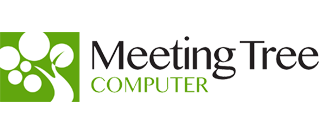Most people keep their personal information as secure as possible; they don’t post their passwords on social media or share Social Security numbers with untrustworthy sources. These practices seem obvious, but there are other, even more important, things you can do to provide better protection. You’ll find four of those tactics here.
Avoid Unsecured (Public) Wi-Fi – The same features that make free Wi-Fi hotspots desirable for consumers make them attractive for hackers; they require no authentication to establish a network connection. This password-free/protection-free access creates a fantastic opportunity for a hacker to get unfettered access to every piece of information you’re sending out on the Internet: important emails, credit card information, and even security credentials to your business network. Better to avoid them whenever possible.
Use a Password Manager – We all know that we shouldn’t use the same password between multiple accounts, but creating a multitude of new passwords is a hassle. And you can forget about remembering them all (see what we did there? 😉). Utilizing a password manager solves both of these challenges.
A password manager is a secure platform that stores your passwords and even generates long random passwords. The benefit of this is that you’re only required to remember one master password, the one you use to set up the tool. The password manager does the rest.
Activate Multifactor Authentication – Passwords are essential and an excellent start to proper cyber hygiene. But you’ll have even better protection against malicious actors when you active 2FA (or multifactor authentication) on all accounts that offer the option.
MFA requires you to provide two or more pieces of evidence when logging into an account. You’re likely to have used this technology yourself; for example, when you’ve logged into your bank and been texted an access code or had to generate it on a separate device.
The exciting thing about MFA is that it stops your password from being the sole gatekeeper to your account. A hacker needs the second piece of evidence – such as the code that’s been generated – to gain access to your account.
Think Before Posting – Be careful about what you share on social media. Remember that nothing posted in a public forum is ever private, so think about what you post and how this can be used against you when this information falls into the wrong hands.
You may not have shared your bank account number, but what about your birth date, your children’s birth dates, the city you live in, and where you work … ?
Unfortunately, there is no limit to the damage that a hacker can do with such personal information. We’re not suggesting that you should never use social media, but you do need to consider your vulnerabilities. So be mindful of what you share.

